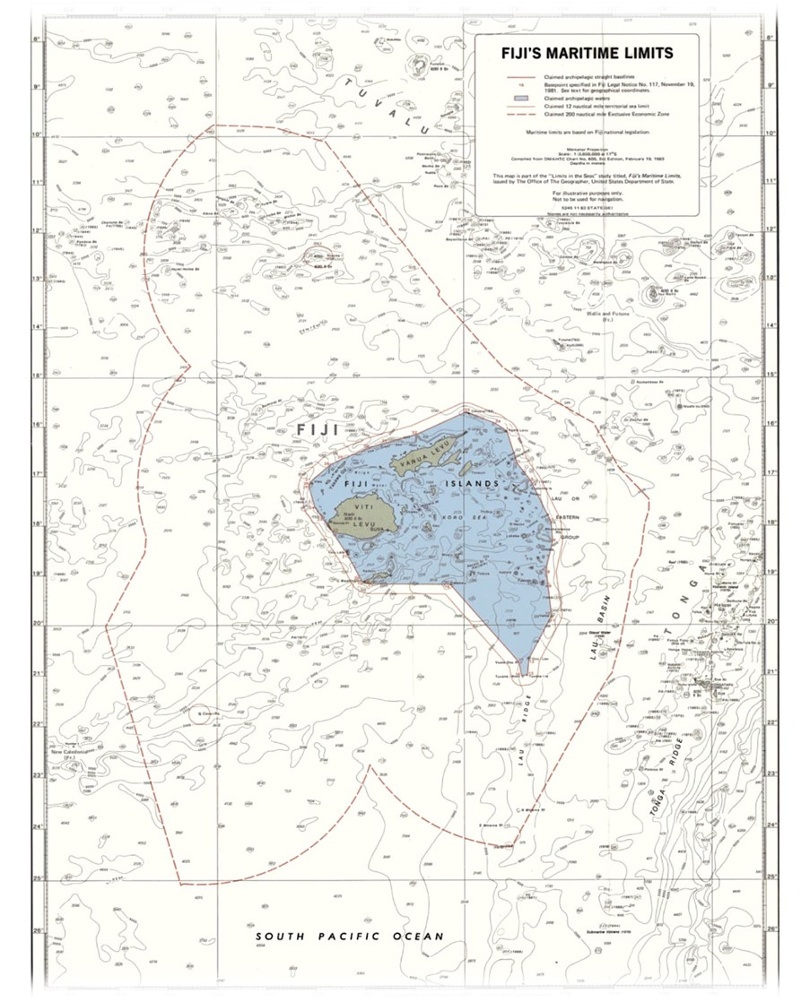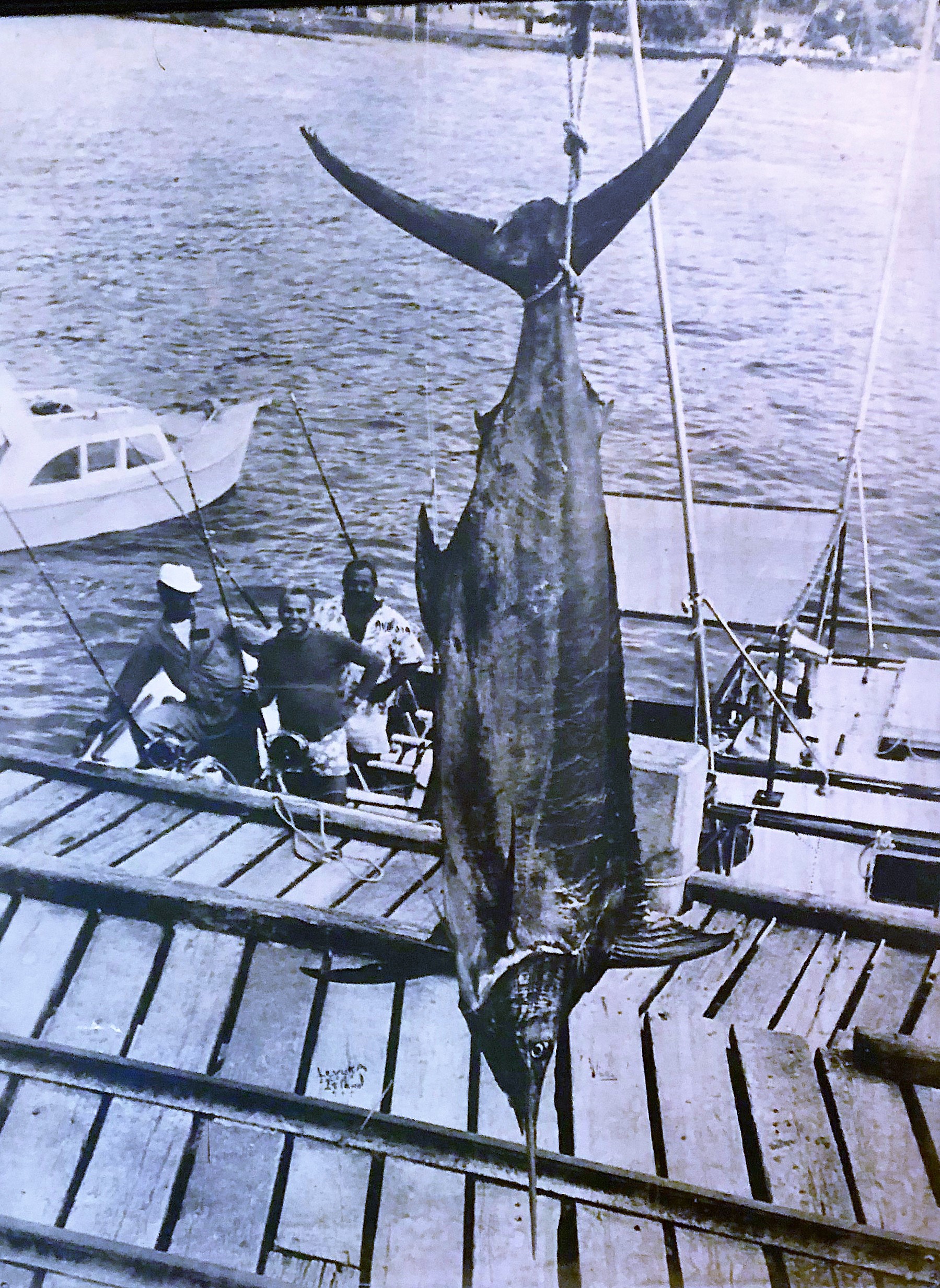In accordance with Fiji law, commercial fishing within Fiji's large archipelagic and territorial waters is reserved only for Fiji registered fishing vessels. Foreign fishing vessels may be licensed to fish within Fiji Exclusive Economic Zone (EEZ) and Fiji registered fishing vessels may also be licensed to fish in Fiji's EEZ.
Fiji has total authority to regulate and manage its fisheries across its vast archipelagic and territorial waters (which we refer to as inshore areas) and this authority derives from Fiji's territorial sovereignty. Getting its fisheries management regime right in these inshore areas is in Fiji's national interest.
In this legal bulletin we describe Fiji's inshore areas and its authority to regulate fisheries, discuss the modern legislative framework Fiji has in place to manage and regulate its inshore fisheries, and set out why Fiji's opportunity to implement sustainable management is dependent on good decision-making processes led by Fiji's Ministry of Fisheries. We also update on some initiatives that are being undertaken by the Ministry of Fisheries to manage inshore fisheries.

New fisheries officers take part in a mock trial under the expert guidance of Kiji Vukikomoala, the Executive Director of the Fiji Environmental Law Association
The health and sustainability of Fiji fisheries is a matter of national importance because fish provide an important food source for Fiji’s population, mitigate the effects of natural disasters including the effects of climate change, and because fishing, aquaculture and tourism related to Fiji's oceans is an economic activity that generates revenue for Fiji’s economy.
But good fisheries management is challenging for many well known reasons. These reasons include, but are not limited to, fish being a common pool resource that swim across lines on maps, the practical and financial difficulties of obtaining reliable scientific data upon which to base management decisions, and due to human behaviour.
Fiji is fortunate to be blessed with large ocean spaces that exist within its territorial sovereignty. This includes vast archipelagic waters and territorial seas. It is within these areas of ocean Fiji's most important fisheries exist. This is because the oceans resources in inshore areas benefit all Fiji's citizens, provide for food security and play a large part in Fiji's vital tourism industry.
Fiji's archipelagic waters and territorial seas extend from the foreshore and include all areas of ocean up to the boundary of (but does not include) Fiji's EEZ.
In Fiji's archipelagic waters and territorial seas, the State has much greater control and authority to make management decisions, and implement fisheries management than it does in any other area of ocean, including its EEZ. It is important to appreciate the size and scale of these areas of ocean, which are illustrated by this map, by all areas of ocean within the blue shaded area (archipelagic waters, and then for 12 nautical miles outwards from where the blue shading ends, which are Fiji's territorial seas):

This maps shows Fiji's EEZ, territorial sea and archipelagic waters. It is provided to demonstrate that Fiji enjoys sovereignty (total legislative authority) over significant inshore areas of ocean that are important for its fisheries resources.
The legislative and regulatory framework for Fiji's archipelagic waters and territorial seas (Inshore areas)
Fiji has, for the time being, two written laws in place that regulate fishing activity in “Fiji’s fisheries waters” being the Fisheries Act, 1941 and the Offshore Fisheries Management Act, 2012. Both Acts have Regulations and pursuant to both Acts, the Honourable Minister for Fisheries has the power to make more Regulations in accordance with powers delegated by Parliament for the purpose of regulating and managing its fisheries.
The Ministry of Fisheries is the government agency that regulates fisheries and implements fisheries law, and to do this, it has created:
- The Offshore Fisheries Division (OFD) and
- The Inshore Fisheries Management Division (IFMD).
Fiji has, therefore, at present divided its management of fisheries into “offshore” and “inshore” fisheries divisions.
The decision to divide fisheries into two sectors (offshore and inshore) does not have a scientific basis, because increasingly science and scientists are explaining that ecosystems are connected and as a result there should be an ecosystem approach to the management of all natural resources, including fish.
It is more likely that this dual approach is for administrative reasons because licensing foreign fishing vessels in Fiji's EEZ may generate inward investment for Fiji's economy but also involve more obligations to comply with international law and present unique governance challenges. Equally, the regulation of fisheries in inshore areas involves particular context specific challenges. This is presumably why (and it makes good sense) for the Ministry of Fisheries to establish two separate divisions, being the OFD and the IFMD.
To understand the legislative framework it is important to be aware that the Offshore Fisheries Management Act, despite its title - applies to all “Fiji Fisheries Waters” - including the territorial sea, archipelagic waters and internal waters.
The OFMA is a modern piece of legislation that recognises the importance and significance of fisheries resources to Fiji and introduces significant criminal penalties for those who break the law regardless of the area of ocean in which the law is broken.
The particular aim of the OFMA is to bestow appropriate powers to enforce Fiji's fisheries management decisions and therefore protect its natural resources from commercial interests that do not want to operate inside the laws by fishing:
- without a licence;
- in breach of a fishing licence or fishing licence condition;
- in ways that breach the laws (by using illegal fishing gear or illegal fishing methods - that cause harm to the environment/fisheries).
Opportunities and Challenges for “inshore fisheries”
At the present time, an important challenge for Fiji fisheries is to determine how it wants to manage and regulate fisheries within its inshore areas.
But this challenge also provides Fiji with an opportunity, because as discussed, Fiji has the authority to create, implement and enforce the rules and regulations that it wants to in these areas and what licensing fees it may charge and what licensing conditions and other management requirements it wants to impose.
Under the OFMA, the relevant Minister and Permanent Secretary may make regulations to restrict types of fishing, create MPA no take zones, or limit areas to fishing by certain methods only (for example rod and line). In addition, under section 30(3) of the OFMA
(3) The Permanent Secretary may attach to any licence or authorisation such special conditions as may be required for the proper management of fisheries, including conditions relating to—
(a) the type and method of fishing or related activity authorised;
(b) the areas where fishing or related activities are authorised;
(c) the target species and amount of fish authorised to be taken, including any restriction on by-catch;
(d) the times within which such fishing or related activities are authorised;
(e) protection and indemnity insurance required; and
(f) restrictions relating to the numbers, types, sizes, specifications or operation of fishing related equipment or vessels.
The above section demonstrates that via its licensing process the Ministry of Fisheries has regulatory power to implement and enforce its management decisions for Fiji's inshore fisheries.
It is therefore up to the Ministry of Fisheries, as the relevant implementing agency, to determine how it wants to manage its inshore fisheries, and this may require a careful decision-making process that takes into account the rights that exist within these areas, including, any traditional rights, and existing commercial rights.
As part of this process other opportunities that may be discussed include better regulation of commercial fishing operations in inshore areas (territorial seas and archipelagic waters), the potential for more revenue raising for traditional communities who may engage in commercial fishing outside traditional fishing grounds, how to integrate marine protected areas within its fisheries regime, and how to encourage more community based enterprise that focuses on protection for the marine environment and those who depend upon it.
The IFMD also faces a challenge, and this is that while it represents a sensible initiative to create a dedicated division for the regulation of inshore fisheries, at present, it is not receiving adequate funding. In the last two budget allocations the IFMD received an allocation of FJ$200,000 and this may be insufficient to provide for the function of regulating fisheries, let alone the budget required for determining a bigger and better plan for inshore fisheries.
However, there are many bright spots, and this includes fisheries management initiatives that are being undertaken by dedicated Ministry of Fisheries Officers, leadership by key personnel including the Honourable Minister and Permanent Secretary, funding opportunities from the New Zealand Government and the possibility of unifying other donors around the important task of determining a more integrated management approach for Fiji’s inshore fisheries led by the Ministry of Fisheries and IFMD.
Fiji has already seen the start of some excellent fisheries management initiatives from the IFMD including successful implementation of seasonal bans of important coral reef fisheries species, the continuation of enforcement of bans on hunting turtles in Fiji fisheries waters and the enforcement of the ban on illegal beche de mer harvesting.
The IFMD has also recruited new fisheries officers who have completed an intensive 4 week training programme in all areas of fisheries law, with a particular emphasis on monitoring, control and surveillance, how to gather information and present this information in Court. This training programme was supported by other government agencies and the Fiji Environmental Law Association who conducted sessions on evidence gathering and how to present this evidence in court via mock trials.

An authorised Ministry of Fisheries officer measures mud crabs at a local Suva restaurant
Conclusions
The international law framework has provided Fiji with the sole authority and right to manage its inshore fisheries, this requires careful planning and a good decision making process to take account of existing commercial interests.
While, in sovereign areas of ocean, Fiji undoubtedly faces challenges it also has exciting opportunities to demonstrate leadership through an integrated management approach to inshore fisheries led by the IFMD that could see more emphasis on excluding commercial fisheries from certain areas to the benefit of community based fishing interests or game fishing interests. Indeed, Fiji's game fishing associations are well resourced, interested in sustainable fisheries and increasing Fiji's tourism potential and revenue that would flow from excluding commercial fishing from certain inshore areas of ocean.
The photo below is from the past, but there is no reason why if Fiji's fisheries are managed with a long term vision this could not be part of Fiji's fisheries future too:

This legal bulletin is provided for information purposes only and is not, and should not be relied upon as legal advice.
Please note:
- This legal bulletin only addresses regulation of commercial fisheries in inshore areas of ocean that are subject to Fiji sovereignty.
- This legal bulletin does not address iqoliqoli (traditional fishing grounds) because these are nearshore fisheries areas in which Fiji's law and governance framework recognises and protects traditional fishing rights for iTaukei communities. Within iqoliqoli co-management and community based management initiatives are underway between the community, the Fiji Locally Managed Marine Area network (FLMMA) and the Ministry of Fisheries.
- This legal bulletin also does not address regulation in Fiji's EEZ because this area is outside Fiji's territorial sovereignty and involves the licensing of foreign vessels and management measures that are, amongst other things, defined and limited by international law, and regulated via cooperation between Fiji and regional fisheries management organisations in accordance with Fiji's sovereign rights bestowed by international law (United Nations Convention on the Law of the Sea).
With thanks to: The Ministry of Fisheries and Damian Johnson for the opportunity to present on the Offshore Fisheries Management Act and authorised fisheries officers powers at the recent 4 week induction programme undertaken by the IFMD.
The Fiji Environmental Law Association (fela.org.fj) and particularly Kiji Vukikomoala who provided their time and expertise to ensure that the new fisheries officers were given a firm grounding in the legal process.



